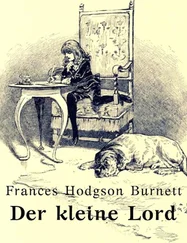"Would you like to see Emily?" she inquired.
"Who is Emily?" Ermengarde asked, just as Miss Minchin had done.
"Come up to my room and see," said Sara, holding out her hand.
They jumped down from the window-seat together, and went upstairs.
"Is it true," Ermengarde whispered, as they went through the hall- -"is it true that you have a playroom all to yourself?"
"Yes," Sara answered. "Papa asked Miss Minchin to let me have one, because--well, it was because when I play I make up stories and tell them to myself, and I don't like people to hear me. It spoils it if I think people listen."
They had reached the passage leading to Sara's room by this time, and Ermengarde stopped short, staring, and quite losing her breath.
"You make up stories!" she gasped. "Can you do that--as well as speak French? Can you?"
Sara looked at her in simple surprise.
"Why, anyone can make up things," she said. "Have you never tried?"
She put her hand warningly on Ermengarde's.
"Let us go very quietly to the door," she whispered, "and then I will open it quite suddenly; perhaps we may catch her."
She was half laughing, but there was a touch of mysterious hope in her eyes which fascinated Ermengarde, though she had not the remotest idea what it meant, or whom it was she wanted to "catch," or why she wanted to catch her. Whatsoever she meant, Ermengarde was sure it was something delightfully exciting. So, quite thrilled with expectation, she followed her on tiptoe along the passage. They made not the least noise until they reached the door. Then Sara suddenly turned the handle, and threw it wide open. Its opening revealed the room quite neat and quiet, a fire gently burning in the grate, and a wonderful doll sitting in a chair by it, apparently reading a book.
"Oh, she got back to her seat before we could see her!" Sara explained. "Of course they always do. They are as quick as lightning."
Ermengarde looked from her to the doll and back again.
"Can she--walk?" she asked breathlessly.
"Yes," answered Sara. "At least I believe she can. At least I pretend I believe she can. And that makes it seem as if it were true. Have you never pretended things?"
"No," said Ermengarde. "Never. I--tell me about it."
She was so bewitched by this odd, new companion that she actually stared at Sara instead of at Emily--notwithstanding that Emily was the most attractive doll person she had ever seen.
"Let us sit down," said Sara, "and I will tell you. It's so easy that when you begin you can't stop. You just go on and on doing it always. And it's beautiful. Emily, you must listen. This is Ermengarde St. John, Emily. Ermengarde, this is Emily. Would you like to hold her?"
"Oh, may I?" said Ermengarde. "May I, really? She is beautiful!" And Emily was put into her arms.
Never in her dull, short life had Miss St. John dreamed of such an hour as the one she spent with the queer new pupil before they heard the lunch-bell ring and were obliged to go downstairs.
Sara sat upon the hearth-rug and told her strange things. She sat rather huddled up, and her green eyes shone and her cheeks flushed. She told stories of the voyage, and stories of India; but what fascinated Ermengarde the most was her fancy about the dolls who walked and talked, and who could do anything they chose when the human beings were out of the room, but who must keep their powers a secret and so flew back to their places "like lightning" when people returned to the room.
"We couldn't do it," said Sara, seriously. "You see, it's a kind of magic."
Once, when she was relating the story of the search for Emily, Ermengarde saw her face suddenly change. A cloud seemed to pass over it and put out the light in her shining eyes. She drew her breath in so sharply that it made a funny, sad little sound, and then she shut her lips and held them tightly closed, as if she was determined either to do or not to do something. Ermengarde had an idea that if she had been like any other little girl, she might have suddenly burst out sobbing and crying. But she did not.
"Have you a--a pain?" Ermengarde ventured.
"Yes," Sara answered, after a moment's silence. "But it is not in my body." Then she added something in a low voice which she tried to keep quite steady, and it was this: "Do you love your father more than anything else in all the whole world?"
Ermengarde's mouth fell open a little. She knew that it would be far from behaving like a respectable child at a select seminary to say that it had never occurred to you that you could love your father, that you would do anything desperate to avoid being left alone in his society for ten minutes. She was, indeed, greatly embarrassed.
"I--I scarcely ever see him," she stammered. "He is always in the library--reading things."
"I love mine more than all the world ten times over," Sara said. "That is what my pain is. He has gone away."
She put her head quietly down on her little, huddled-up knees, and sat very still for a few minutes.
"She's going to cry out loud," thought Ermengarde, fearfully.
But she did not. Her short, black locks tumbled about her ears, and she sat still. Then she spoke without lifting her head.
"I promised him I would bear it," she said. "And I will. You have to bear things. Think what soldiers bear! Papa is a soldier. If there was a war he would have to bear marching and thirstiness and, perhaps, deep wounds. And he would never say a word--not one word."
Ermengarde could only gaze at her, but she felt that she was beginning to adore her. She was so wonderful and different from anyone else.
Presently, she lifted her face and shook back her black locks, with a queer little smile.
"If I go on talking and talking," she said, "and telling you things about pretending, I shall bear it better. You don't forget, but you bear it better."
Ermengarde did not know why a lump came into her throat and her eyes felt as if tears were in them.
"Lavinia and Jessie are `best friends,'" she said rather huskily. "I wish we could be `best friends.' Would you have me for yours? You're clever, and I'm the stupidest child in the school, but I-- oh, I do so like you!"
"I'm glad of that," said Sara. "It makes you thankful when you are liked. Yes. We will be friends. And I'll tell you what"-- a sudden gleam lighting her face--"I can help you with your French lessons."
Chapter 4: Lottie
If Sara had been a different kind of child, the life she led at Miss Minchin's Select Seminary for the next few years would not have been at all good for her. She was treated more as if she were a distinguished guest at the establishment than as if she were a mere little girl. If she had been a self-opinionated, domineering child, she might have become disagreeable enough to be unbearable through being so much indulged and flattered. If she had been an indolent child, she would have learned nothing. Privately Miss Minchin disliked her, but she was far too worldly a woman to do or say anything which might make such a desirable pupil wish to leave her school. She knew quite well that if Sara wrote to her papa to tell him she was uncomfortable or unhappy, Captain Crewe would remove her at once. Miss Minchin's opinion was that if a child were continually praised and never forbidden to do what she liked, she would be sure to be fond of the place where she was so treated. Accordingly, Sara was praised for her quickness at her lessons, for her good manners, for her amiability to her fellow pupils, for her generosity if she gave sixpence to a beggar out of her full little purse; the simplest thing she did was treated as if it were a virtue, and if she had not had a disposition and a clever little brain, she might have been a very self-satisfied young person. But the clever little brain told her a great many sensible and true things about herself and her circumstances, and now and then she talked these things over to Ermengarde as time went on.
Читать дальше












